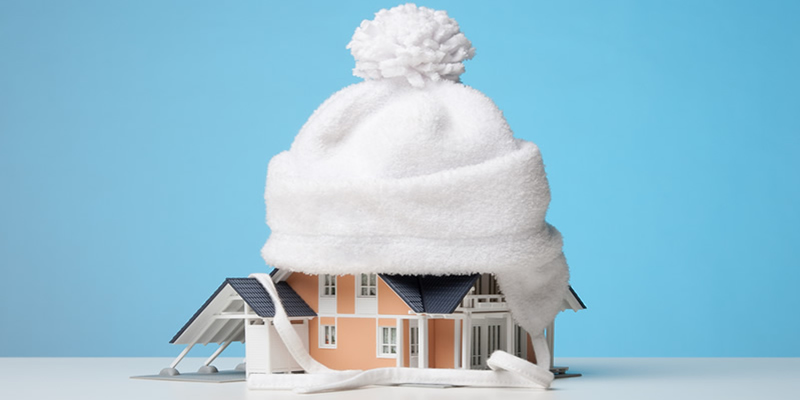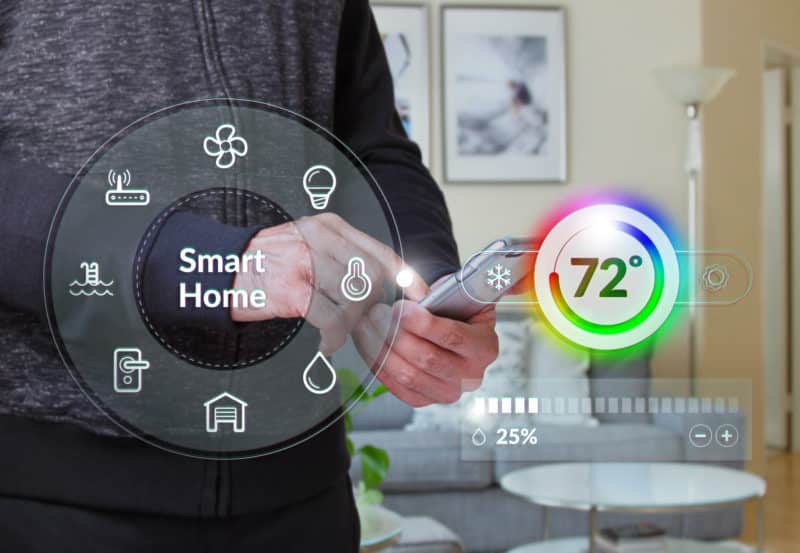How to Avoid Common Home Heating Problems This Winter – The opinions expressed by the author in this and all guest blogs are not necessarily those of Gainesville Restoration and Remodeling. Winter season, the time for snug blankets and steaming mugs of cocoa, also brings unwelcome guests: home heating problems! The last thing you would want to experience is your heating system decides to take a vacation! As the icy winds gust outside, a failing heating system can quickly turn your cozy home into an icy cavern. No worries, though! In this article, we’ll provide tips on sidestepping common heating problems during the winter months.

How to Avoid Common Home Heating Problems This Winter
Common Heating Problems This Winter
Before we delve into the solutions, let’s size up the potential culprits lurking in your heating system. Familiarize yourself with these common problems inside your home to better combat them:
- Frozen Pipes: When temperatures plummet, pipes can freeze and potentially burst, causing havoc.
- Furnace Failures: Regular wear and tear or lack of maintenance can lead to furnace malfunctions.
- Inadequate Insulation: Poorly insulated homes can leak warmth, causing your system to work overtime just to heat your home.
- Thermostat Troubles: Malfunctioning thermostats might not accurately control your home’s temperature, leading to discomfort and inefficiency.
- Airflow Restrictions: Blocked vents, dirty filters, or ductwork issues can restrict proper airflow, causing uneven heating or system strain.
- Short Cycle: Rapid on-off cycles of the heating system, potentially caused by an oversized HVAC system, clogged air filters, or thermostat issues
Proactive Measures to Avoid Common Winter Heating Issues
Schedule a Pre-Winter HVAC Check-Up
- Call in the Pros: Have a professional HVAC technician do a thorough inspection and heating maintenance services before the frosty season arrives. Their expertise can identify potential issues early, ensuring your system is winter-ready and functioning at its best, keeping you snug all season long.
- Clean Those Filters: Clogged filters hinder the flow of the heated air, strain your system, and decrease efficiency. Regularly cleaning dirty air filters or replacing these can save you from heating hiccups.
- Inspect the Ductwork: Check for any leaks or blockages in your ducts. Sealing leaks and clearing blockages can significantly improve the efficiency of your heating system.
Winterizing Your Home
- Seal the Leaks: Drafty windows and doors can let the cold seep in. Seal gaps and cracks with weather stripping or caulking.
- Insulate, Insulate, Insulate: Beef up your home’s insulation, especially in the attic and walls. It’ll trap the heat inside where it belongs.
- Protect Those Pipes: Insulate exposed pipes to prevent freezing. Running a trickle of water through faucets during extreme cold can also prevent freezing.
Battling the Chill: Troubleshooting Heating System Issues
Dealing with Frozen Pipes
- Thawing Safely: If pipes freeze, never use an open flame! Use towels soaked in hot water or a hairdryer to thaw them slowly.
- Prevent Future Freezes: Keep cabinet doors open to allow warm air to circulate pipes. Consider using pipe insulation to prevent future freezing.
Tackling Furnace Failures
- Check the Thermostat: Ensure it’s set to ‘heat’ and at the right temperature. Replace batteries if needed.
- Inspect the Circuit Breaker: A tripped circuit breaker might be the culprit. Reset it and see if that resolves the issue.
- Don’t Skip Maintenance: Regular maintenance prevents breakdowns. Schedule annual check-ups for your furnace.
Mastering Thermostat Troubles
- Calibrate the Thermostat: Test the accuracy of your thermostat by using a separate thermometer. If it’s off, recalibrate it according to the manufacturer’s instructions.
- Upgrade if Needed: Consider investing in a smart thermostat for better control and energy efficiency.
The Importance of Professional Heating Services
Calling in a professional HVAC technician is key to preventing winter heating issues despite your efforts. Their expertise detects problems early to prevent heating problems all winter long.
- Early Detection: HVAC professionals are trained to identify potential issues that might go unnoticed by homeowners during routine checks. Their keen eye can spot minor concerns before they escalate into significant problems.
- Comprehensive Inspection: A thorough pre-winter check-up by a certified technician ensures that every aspect of your heating system, including ducts, filters, and thermostat, is in optimal condition for the upcoming cold season.
- Safety Measures: Professionals prioritize safety protocols, especially in cases of potential gas leaks or electrical issues, averting hazardous situations and ensuring the well-being of your household.
- Long-term Efficiency: Their maintenance services also contribute to the long-term efficiency and durability of your heating system, reducing the likelihood of breakdowns during winter.
Frequently Asked Questions (FAQs)
Q: Can I troubleshoot my heating system on my own?
A: Yes, but proceed with caution. Some tasks, like changing filters or adjusting the thermostat, can be DIY-friendly. However, complex issues might require professional help.
Q: How often should I schedule maintenance for my heating system?
A: It’s advisable to schedule annual maintenance before winter. This ensures optimal performance and catches potential problems early.
Q: What should I do if I suspect a gas leak from my heating system?
A: Immediately evacuate your home, leave doors/windows open, and call emergency services. Do not turn on any lights or use electrical devices that could create a spark.
Q: Why is my heater making strange noises?
A: Odd noises like a squealing sound or loud bang, for instance, could signal various issues, from loose components to airflow problems. It’s best to turn off the heater and consult a professional for inspection and repairs.
Q: How can I save money on my heating bill?
A: To cut your energy bill, consider programming your thermostat for efficient temperature control, sealing drafts, insulating your home, and scheduling regular maintenance to ensure your system operates at peak efficiency.
Embracing a Warm, Trouble-Free Winter!
Prepare for the winter battle against heating issues armed with these strategies. Through regular maintenance, preemptive measures, and troubleshooting, maintain your home as a cozy haven during the chilly months. Remember, little preparation wards off common heating problems this winter. With these tips, bid farewell to heating troubles and embrace a snug and delightful season!
How to Avoid Common Home Heating Problems This Winter
About the Author
Maria Klesser is a content marketing specialist for Paragon Service Pros, with a focus on creating informative and engaging articles about heating, ventilation, and air conditioning. With 5 years of experience in the industry, she brings a unique perspective to her writing, combining her technical knowledge with her passion for helping homeowners understand how their HVAC systems work.








